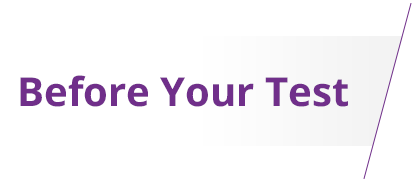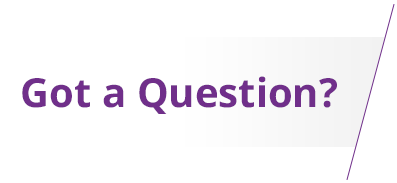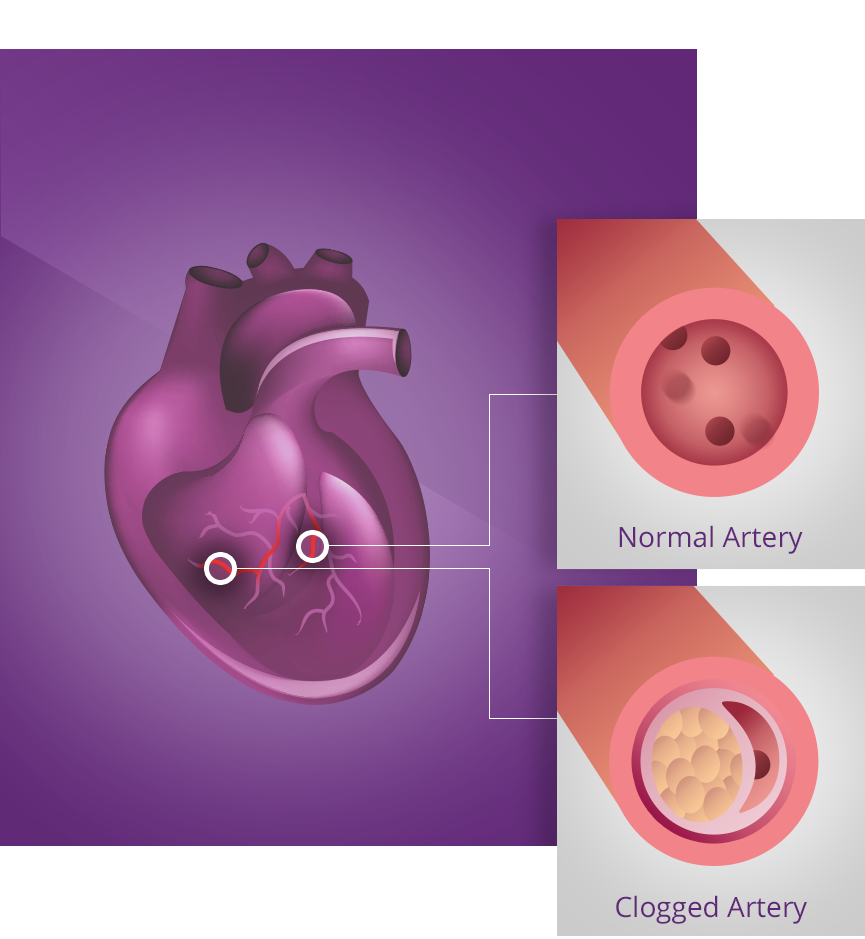Before Your Test |
|
Learn what to do and what to avoid Learn More |
Got a question? |
|
See what people are asking Learn More |

|
Learn what to do and what to avoid Learn More |
 |
See what people are asking Learn More |

The heart is a specialized muscle. Like other muscles in your body, it needs oxygen and nutrients. The coronary (heart) arteries deliver oxygen and nutrients to your heart so that it can effectively pump blood throughout your body. People with heart disease may have 1 or more coronary arteries that have become narrowed or clogged over time by fatty deposits (also called plaques). These can decrease blood flow to the heart.
injury
severe arthritis
back trouble
serious illness
Lexiscan® (regadenoson) injection is a prescription medicine that goes into your blood by an IV (intravenous) line. It increases blood flow through the arteries of the heart during a cardiac nuclear stress test. Lexiscan is used when a patient cannot exercise adequately for a stress test.
Lexiscan is not for everyone.
Lexiscan should not be given to patients who have certain abnormal heart rhythms, unless they have a pacemaker.
Lexiscan can cause serious or fatal cardiac arrest, abnormal heart rhythms, or heart attack.
Allergic reactions can occur after Lexiscan injection.
Lexiscan may cause an increase or decrease in blood pressure, especially in patients with certain heart and blood disorders.
Tell your doctor if you:
Lexiscan can cause stroke, which may be a result of an increase or decrease in blood pressure.
The most common side effects that occurred in clinical trials of Lexiscan include:
These side effects began soon after receiving Lexiscan and went away in 15 to 30 minutes.
In the 12 hours before your heart scan:
Ask your doctor if you should stop taking any medicines you usually take before the day of the test.
If you are nursing, be sure to pump and throw away breast milk for 10 hours after receiving Lexiscan.
You are encouraged to report negative side effects of prescription drugs to the FDA. Visit www.fda.gov/medwatch or call 1-800-FDA-1088.
For further information, please talk to your healthcare professional and see accompanying full Prescribing Information for Lexiscan.
Usage
What is Lexiscan?
Lexiscan® (regadenoson) injection is a prescription medicine that goes into your blood by an IV (intravenous) line. It increases blood flow through the arteries of the heart during a cardiac nuclear stress test. Lexiscan is used when a patient cannot exercise adequately for a stress test.
Important Safety Information
Who should not be given Lexiscan?
Lexiscan is not for everyone.
Lexiscan should not be given to patients who have certain abnormal heart rhythms, unless they have a pacemaker.
Lexiscan can cause serious or fatal cardiac arrest, abnormal heart rhythms, or heart attack. Allergic reactions can occur after Lexiscan injection.
Lexiscan® (regadenoson) injection is a prescription medicine that goes into your blood by an IV (intravenous) line. It increases blood flow through the arteries of the heart during a cardiac nuclear stress test. Lexiscan is used when a patient cannot exercise adequately for a stress test.
Lexiscan is not for everyone.
Lexiscan should not be given to patients who have certain abnormal heart rhythms, unless they have a pacemaker.
Lexiscan can cause serious or fatal cardiac arrest, abnormal heart rhythms, or heart attack.
Allergic reactions can occur after Lexiscan injection.
Lexiscan may cause an increase or decrease in blood pressure, especially in patients with certain heart and blood disorders.
Tell your doctor if you:
Lexiscan can cause stroke, which may be a result of an increase or decrease in blood pressure.
The most common side effects that occurred in clinical trials of Lexiscan include:
These side effects began soon after receiving Lexiscan and went away in 15 to 30 minutes.
In the 12 hours before your heart scan:
Ask your doctor if you should stop taking any medicines you usually take before the day of the test.
If you are nursing, be sure to pump and throw away breast milk for 10 hours after receiving Lexiscan.
You are encouraged to report negative side effects of prescription drugs to the FDA. Visit www.fda.gov/medwatch or call 1-800-FDA-1088.
For further information, please talk to your healthcare professional and see accompanying full Prescribing Information for Lexiscan.